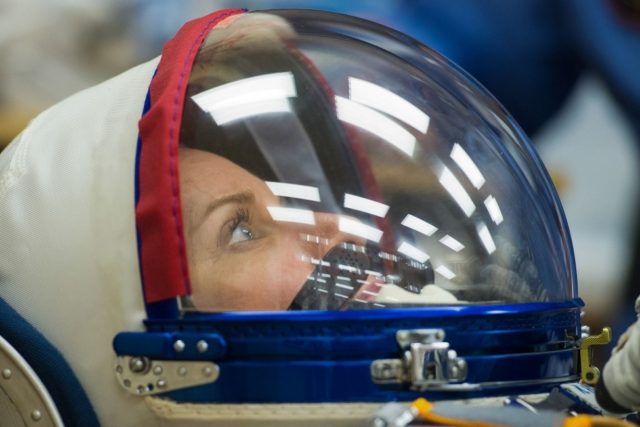Oct. 14 (UPI) — The Soyuz MS-17 spacecraft successfully launched early Wednesday from Kazakhstan to the International Space Station, with NASA astronaut Kate Rubins and Russian cosmonauts Sergey Ryzhikov and Sergey Kud-Sverchkov aboard.
The spacecraft lifted off from the Baikonur Cosmodrome at 1:45 a.m. EDT for the two-orbit, three-hour flight to the ISS, where the crew of Expedition 64 were scheduled to begin their six-month mission on the space outpost.
The capsule of the Soyuz aircraft docked with the Earth-facing side of the station’s Russian segment at 4:48 a.m. The hatch to the ISS was opened about 7:08 a.m.
Liftoff! The Soyuz spacecraft carrying Kate Rubins of @NASA_Astronauts and Sergey Ryzhikov and Sergey Kud-Sverchkov of Roscosmos on a two-orbit, three-hour journey to the @Space_Station launched at 1:45am EDT. pic.twitter.com/40Qr8ByJQx— NASA (@NASA) October 14, 2020
The launch is Rubins’ second voyage into space after she was aboard the first test flight of the then-new Soyuz MS spacecraft that launched from Kazakhstan to the ISS in July 2016, according to NASA.
In her first stay on the ISS four years ago, she conducted two spacewalks for a total of 12 hours, 46 minutes, during which she installed a new docking port for U.S. commercial crew spacecraft and high-definition cameras, as well as performing maintenance on the ISS external thermal control system.
Wednesday’s is the second spaceflight for Ryzhikov and the first for Kud-Sverchkov.
The trio will be joining NASA Commander Chris Cassidy and Russian cosmonauts Anatoly Ivanishin and Ivan Vagner of Expedition 63, whose mission on the ISS that began in April is set to end later this month. A change of command ceremony is scheduled for Tuesday.
During their six months on the orbiting microgravity laboratory, Rubins and her Expedition 64 crew will continue to work on hundreds of biology, biotechnology, physical science and Earth science experiments, NASA said.

COMMENTS
Please let us know if you're having issues with commenting.